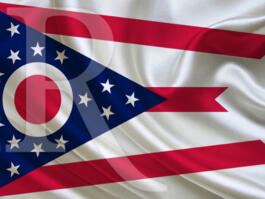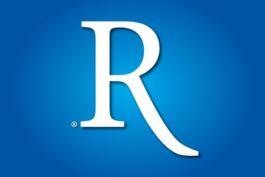Why So Scared of a Public Plan?
A Commentary By Joe Conason
Within the coming weeks, Americans will begin to consider critical issues concerning the future of health care for themselves and their children, including universal coverage, taxation of benefits, computerized records and the controlling of costs. But before the debate commences in Congress and the media, big insurance and pharmaceutical companies are lobbying frantically (and spending millions of dollars) to foreclose the possibility of the most promising aspect of health care reform: a public insurance option.
After decades of denigrating government -- and worshiping corporations -- the idea that a public program might work as well or better than a corporate provider may well sound counterintuitive to many Americans.
How can government, which is so widely believed to do nothing well while wasting enormous sums, possibly be expected to outperform the highly efficient, supremely managed and profitably motivated corporate sector?
Wouldn't we be better off if we simply entrust the provision of health care to the insurance industry? How can we trust those Washington bureaucrats with our health?
Actually, many consumers have learned by now that those questions are misleading at best. They know, for instance, that trusting a health insurance company is likely to be an expensive mistake. They know, too, that corporate bureaucrats can be even more ruthless in denying help to a beleaguered individual or family than those who work in government.
Studies have repeatedly shown that patient satisfaction with Medicare, the quintessential public insurance plan, is considerably higher than with private insurers among comparable age groups. And consumers understand that the drive for profits often conflicts with patient care, leading them to the conclusion that insurance and pharmaceutical corporations are excessively powerful and socially irresponsible.
According to Republican pollster Frank Luntz, the people who respond to his surveys despise "insurer greed," and are disturbed by their profitability, lack of accessibility, lack of accountability and excess of bureaucracy. There is "no love lost" between Americans and the private health insurers, he warned Republican Congressional leaders as they considered how to oppose reform.
But the same arguments that have distorted the debate over health care will emerge again -- especially the claim that private insurance is somehow more efficient than a public program would be, or that we cannot "afford" a public plan.
The opposite is true, as surprising as that may seem. During the decade that ended in 2006, to cite just one set of relevant statistics, the level of health spending per head (for similar benefits) grew 4.6 percent annually under Medicare, while spending under private health insurance rose by 7.3 percent. For many years, in fact, Medicare has performed better at controlling costs than private insurance companies.
One reason is simple and obvious: Eliminating profits for shareholders and management cuts out a major cost factor.
Another is less obvious: Private insurers consistently spend more on overhead and administration than Medicare. To anyone who shares the broad prejudice against government, the difference will be startling, although these numbers are very well known to health experts. The average overhead cost of Medicare is roughly 2 or 3 percent, far below the administrative costs of private insurers, which range between 27 and 40 percent.
These basic facts have broad implications for the nation's capacity to ensure quality health coverage for all of its citizens. Private insurance has strengths as well as weaknesses, but there is no doubt that a new public plan, alongside Medicare, would become an essential yardstick -- as the old New Dealers used to say -- by which to measure the progress and efficiency of the private sector.
The private insurers will complain that this is "unfair" competition, but if the private sector is truly the efficient solution to our costly, wasteful and unfair health care system, then why are they so frightened of a public plan?
Joe Conason writes for the New York Observer.
COPYRIGHT 2009 CREATORS SYNDICATE, INC.
See Other Political Commentary.
See Other Commentary by Joe Conason.
Views expressed in this column are those of the author, not those of Rasmussen Reports.
Rasmussen Reports is a media company specializing in the collection, publication and distribution of public opinion information.
We conduct public opinion polls on a variety of topics to inform our audience on events in the news and other topics of interest. To ensure editorial control and independence, we pay for the polls ourselves and generate revenue through the sale of subscriptions, sponsorships, and advertising. Nightly polling on politics, business and lifestyle topics provides the content to update the Rasmussen Reports web site many times each day. If it's in the news, it's in our polls. Additionally, the data drives a daily update newsletter and various media outlets across the country.
Some information, including the Rasmussen Reports daily Presidential Tracking Poll and commentaries are available for free to the general public. Subscriptions are available for $4.95 a month or 34.95 a year that provide subscribers with exclusive access to more than 20 stories per week on upcoming elections, consumer confidence, and issues that affect us all. For those who are really into the numbers, Platinum Members can review demographic crosstabs and a full history of our data.
To learn more about our methodology, click here.



